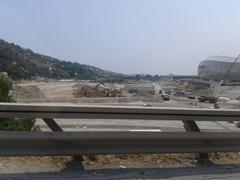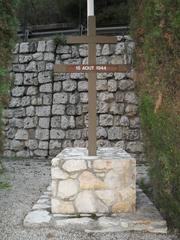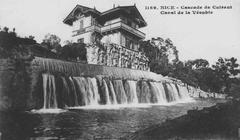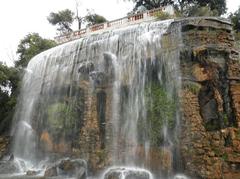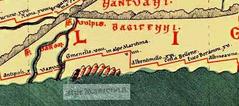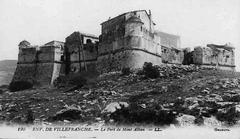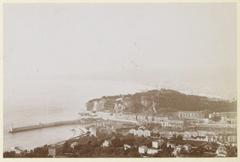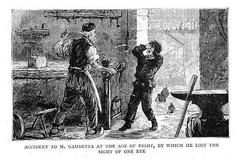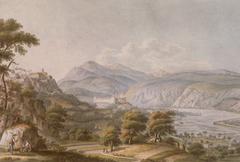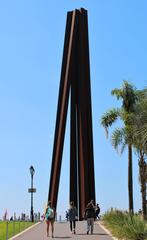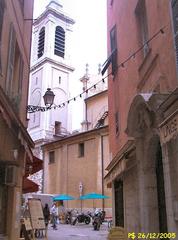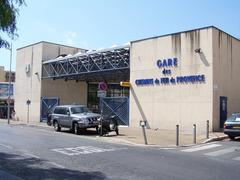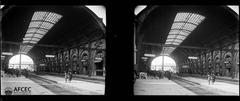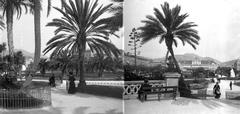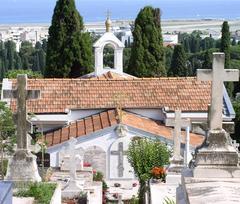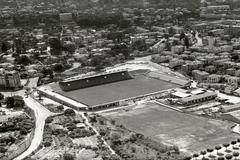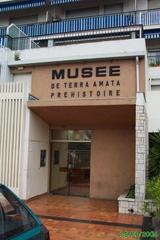Departmental Archives of Alpes-Maritimes, Nice, France: Visiting Hours, Tickets, and Visitor Guide
Date: 14/06/2025
Introduction
Located in the dynamic city of Nice, the Departmental Archives of Alpes-Maritimes serve as a vital institution for preserving the documentary heritage of the region. Established after the annexation of the County of Nice to France in 1860, this institution safeguards over a millennium of local, administrative, and cultural history. Visitors can explore an extensive collection of nearly 40 linear kilometers of documents, dating from as early as 1022, in a modern and accessible facility. This guide provides detailed information on visiting hours, ticketing, accessibility, transportation, digital resources, and nearby attractions to help you plan a comprehensive and rewarding visit (archives06.fr, frenchhistorysociety.co.uk).
Table of Contents
- Historical Overview
- Visiting Information
- Collections and Digital Resources
- Frequently Asked Questions (FAQ)
- Conclusion
- Related Articles
- References
Historical Overview
Origins and Evolution
The Departmental Archives of Alpes-Maritimes were established in response to the administrative needs following the annexation of the County of Nice in 1860. Initially located at 1 rue du Saint-Suaire, the archives were part of a broader national effort to preserve public records, as mandated by the law of 1796. Over time, the archives evolved under the stewardship of dedicated archivists, acquiring significant ecclesiastical and governmental records and expanding their collections to include documents from both public and private sources.
Institutional Growth and Modernization
Throughout the 19th and 20th centuries, the archives experienced considerable growth. Modernization in the 1980s led to the development of purpose-built facilities within the Centre Administratif Départemental des Alpes-Maritimes (CADAM). The move to the Grand Capelet building in the 2000s, later renamed for Charles Ginésy, provided secure and accessible spaces to accommodate expanding collections and visitors (fr.wikipedia.org).
Digitization and Public Access
Since 1997, the archives have prioritized digitization, making millions of pages accessible online. This includes parish and civil registers up to 1903, conscription lists, land registry maps, and more, greatly enhancing public access for researchers and the general public (archives06.fr).
Visiting Information
Location and Accessibility
- Address: Grand Capelet Building, Centre Administratif Départemental des Alpes-Maritimes (CADAM), 147 Traverse de la Digue des Français, Nice.
- Public Transport: The archives are accessible via buses 9 and 10 (CADAM terminus) and tram lines from central Nice. Limited parking is available nearby, but public transportation is recommended (explorenicecotedazur.com).
- Accessibility: The building is fully accessible for visitors with reduced mobility, with ramps, elevators, and adapted restrooms. Assistance is available upon request.
Visiting Hours
- Monday to Friday: 9:00 AM – 5:00 PM
- Lunch break: Collections are paused for lunch between 11:30 AM and 1:30 PM in some reading rooms.
- Closed: Weekends and public holidays
- Note: Opening hours may vary during summer or special events; always check the official website for updates.
Entry and Tickets
- Admission: Entry to the archives, exhibitions, and reading rooms is free.
- Registration: Valid ID is required for on-site registration; advance reservations are recommended for access to specific collections or group visits (francearchives.gouv.fr).
- Special Events: Some guided tours, workshops, and special exhibitions may require advance booking or a nominal fee.
Guided Tours and Events
The archives offer regular guided tours, especially during European Heritage Days in September, as well as rotating exhibitions and educational workshops. These provide unique insights into archival preservation, regional history, and the diverse collections held by the archives.
Visitor Facilities and Services
- Bright reading rooms for research
- Helpful, multilingual staff
- Lockers (no coins required) for personal items
- Accessibility services, including support for visitors with hearing impairments (via the Acceo application)
- Document handling assistance
- On-site and online research support
Collections and Digital Resources
Overview of Collections
The archives house a vast array of materials:
- Administrative records: Minutes, correspondence, decrees, and reports from local authorities
- Civil registration: Birth, marriage, and death records, parish registers (familysearch.org)
- Military records: Conscription tables, WWI hospital records
- Iconographic materials: Photographs, postcards, maps, audiovisual materials
- Special collections: Immigration records, newspapers, council deliberations, private archives
Digital Access
- Online Portal: Millions of digitized images, including civil registers, cadastral maps, and council deliberations, are available for remote research (archives06.fr).
- On-site Terminals: Computer terminals in reading rooms provide access to digitized and catalogued materials.
- Research Support: Online finding aids allow visitors to prepare their research before arrival.
Notable Holdings
- The oldest document dates to 1022
- Archives from the annexed County of Nice and former Italian communes
- Audiovisual archives, oral histories, and private family papers
Nearby Attractions
While visiting the Departmental Archives, take advantage of Nice’s rich cultural landscape:
- Old Town (Vieux Nice): Baroque architecture, markets, and winding streets
- Castle Hill (Colline du Château): Panoramic views and historic ruins
- Musée Masséna: Art and regional history
- Promenade des Anglais: The iconic seaside walkway
Combining your archival visit with these attractions enriches your historical and cultural experience (explorenicecotedazur.com).
Frequently Asked Questions (FAQ)
Q: Do I need to book in advance to visit?
A: Individual visits typically do not require booking. For group tours or access to certain collections, advance reservation is recommended.
Q: Is there an entry fee?
A: Admission is free. Some special events may require prior registration or a small fee.
Q: Are the archives accessible for people with disabilities?
A: Yes, the facility is fully accessible, with adapted restrooms and support services.
Q: Can I take photographs inside?
A: Photography is generally allowed for personal research, subject to certain conditions. Flash and commercial photography are not permitted in reading rooms.
Q: Can I access the archives’ collections online?
A: Many collections are digitized and available through the official website. Some materials require on-site consultation.
Q: What are the best ways to reach the archives?
A: Public transport (buses 9 and 10, tram lines) is recommended due to limited parking.
Conclusion
The Departmental Archives of Alpes-Maritimes are a cornerstone of regional heritage, offering both in-person and digital access to centuries of administrative, social, and cultural records. With free admission, modern facilities, and a commitment to accessibility and public engagement, the archives welcome researchers, locals, and tourists alike. Pair your visit with other historical sites in Nice for a comprehensive experience of the city’s heritage. Stay updated on hours, events, and collections by visiting the official website, and consider downloading the Audiala app for interactive content and cultural updates.
Related Articles
- Explore Nice’s Historical Sites: A Guide to the Old Town and Beyond
- Genealogical Research in the Alpes-Maritimes: Tips and Resources
- The History of the County of Nice: From Annexation to Modern Times
References
- archives06.fr
- frenchhistorysociety.co.uk
- francearchives.gouv.fr
- explorenicecotedazur.com
- familysearch.org
- departement06.fr
- portal.ehri-project.eu
- fr.wikipedia.org

